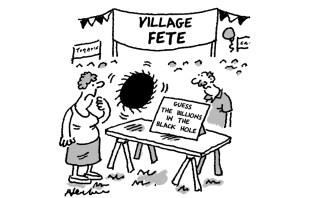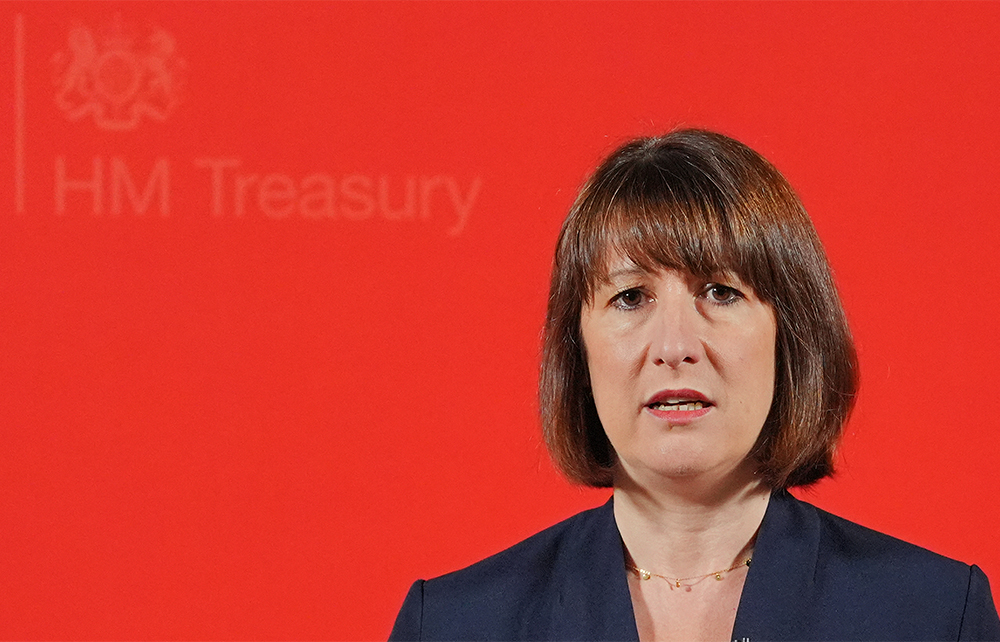Rishi Sunak and Jeremy Hunt entered Downing Street with one mission: to clean up the public finances after Liz Truss’s mini-Budget debacle. They posed as the fiscally credible option. All bills would need to be covered, even if the tax burden had to rise. If the Tories were to lose power for being disciplined and truthful, then so be it.
Reeves would like to pin any rise on the Conservatives: an extension of ‘Tory austerity’ rather than her own
Rachel Reeves has sought to demolish their responsible reputation in her first weeks as Chancellor by announcing that she has discovered a £21.9 billion ‘black hole’ in the public finances this year. This was not an accounting error, according to Reeves, but a cover-up carried out ‘knowingly and deliberately’ by the Tories, thereby forcing her hand to cut spending and, soon, raise taxes. ‘He lied,’ Reeves said of Hunt, her predecessor, the day after she presented her audit to parliament. ‘And they lied during the election campaign about the state of the public finances.’
The Tories don’t simply reject the claim that they concealed nearly £22 billion worth of unfunded spending – they say it would have been impossible to do so. ‘When you think about all the difficulties we were facing in office, especially around tax cuts, there are strong institutional restraints in the system,’ says one shadow cabinet member. The idea that the Office for Budget Responsibility (OBR) and the Treasury ‘would allow a £22 billion black hole to emerge, to sit within the public finances, is beyond belief’.
The accusation has created not just a political frenzy, but an institutional one too. Hunt has sent a letter to the head of the civil service, asking how it can be possible that each department’s most senior civil servants signed off the government’s 2024-25 spending plans only two weeks ago – forecasts and figures that Reeves now says were so wrong as to be ‘beyond reckless’.
Meanwhile the OBR has launched its own investigation, insisting it was unaware of the £22 billion worth of pressures on the public finances when it ran its analysis of the March Budget. ‘Politicians don’t speak to the OBR, civil servants do,’ says one former minister. ‘Either the OBR didn’t have the guts and know-how to challenge what the Treasury was presenting, or the Treasury wilfully misled them.’ It’s these kinds of accusations that have everyone on edge.
‘It’s not right to describe the £22 billion as an unknown black hole,’ says Paul Johnson, director of the Institute for Fiscal Studies (IFS). Long before the election it was warning of a £10 billion to £20 billion black hole in public service spending. They could do this precisely because the figures are made public. But neither Labour nor the Tories wanted to engage much with this ahead of polling day.
‘It was obvious to the IFS, and to the Treasury department, that something wasn’t adding up – unless ministers were willing to make some really tough choices,’ Johnson tells me. ‘Still, of course, it is a choice to opt for the higher pay rise. And Reeves has chosen to do that.’ He’s referring to the biggest single part of the £22 billion ‘black hole’: pay awards. The Chancellor’s decision to give above-inflation pay settlements is estimated to cost, in total, £9.4 billion.
Tory MPs are baffled that Labour announced pay rises – and a 22 per cent salary increase for junior doctors over two years – on the same day as claiming an ‘unforgivable’ hole in the public finances. Labour insists the pay hikes are a long-term saving scheme, in the hope that they prevent future strikes. ‘It cost £1.7 billion for 15 months of junior doctor strikes. What we got for that money is 1.5 million cancelled operations and appointments,’ says one Labour insider. ‘It’s a better deal to have an NHS where the staff are going to work.’
But there is another component to all of this. According to Reeves’s audit, the government’s reserve fund – which sets aside cash for unexpected and unavoidable costs – has been almost drained just four months into the year: £8.6 billion of a £9.2 billion budget already gone. This figure, I understand, is not all money that has already been allocated or spent; rather, it is an estimate of what will be spent this year, based on what the reserve pot usually funds.
What might those costs be? Last year, a large chunk was £4.3 billion for asylum costs and more than £2.4 billion for aid to Ukraine. But those areas have been budgeted for separately in the audit. So what is accounting for almost all the reserve cash? Intriguingly, we’re not told. HM Treasury is keeping most of those details under wraps.
The Treasury says it is making ‘changes’ to increase transparency, which will mean that ‘the OBR will receive more information on all the pressures identified by the Chancellor’ including the details of the reserve claims. ‘They will use this information as part of their assessment of whether government is likely to deliver its spending plans,’ a spokesman said. It remains unclear when these details will become publicly available. What are considered a unavoidable costs by some are likely to be contested by others, as the debate over spending priorities rages on.

Where exactly the £22 billion black hole came from is going to be a growing topic of interest as a battle for fiscal credibility plays out. It’s also a precursor for the bigger fight to come: who will be blamed for Reeves’s tax hikes in the autumn? Having said during the election that ‘there are no additional tax rises needed beyond the ones that I’ve set out’ to cover Labour’s plans, the Chancellor has confirmed there will in fact be tax increases, which could push the tax burden to a record high level.
Her justification for this fundamental policy switch – from tax assurance to tax rises – is the shock of what she says she has uncovered since entering No. 11. Ideally, Reeves would like to pin any hike on the Conservatives: an extension of ‘Tory austerity’ rather than a version of her own.
Will it work? The Tories managed to increase VAT in 2010, just after entering government – and won a general election five years later. But there’s no guarantee. ‘What [Labour is] about to discover is that when a government pushes up taxes, it gets blamed,’ says one Tory MP. ‘We had the best excuse in history – the pandemic – and it wasn’t enough. We still got blamed.’
Watch more on SpectatorTV:








Comments